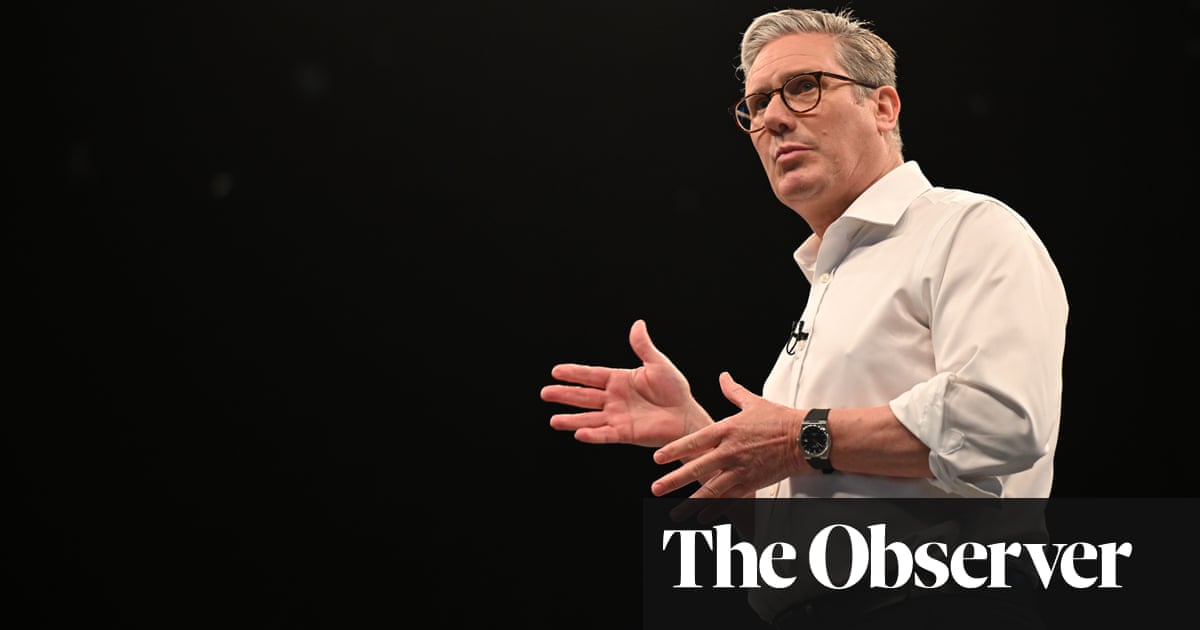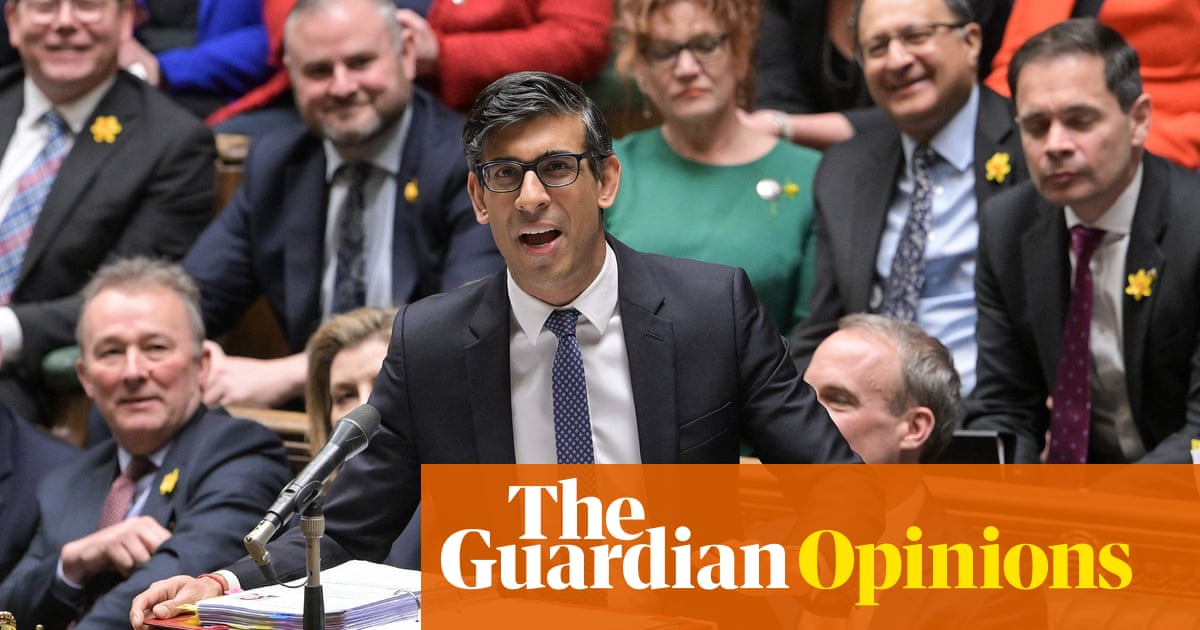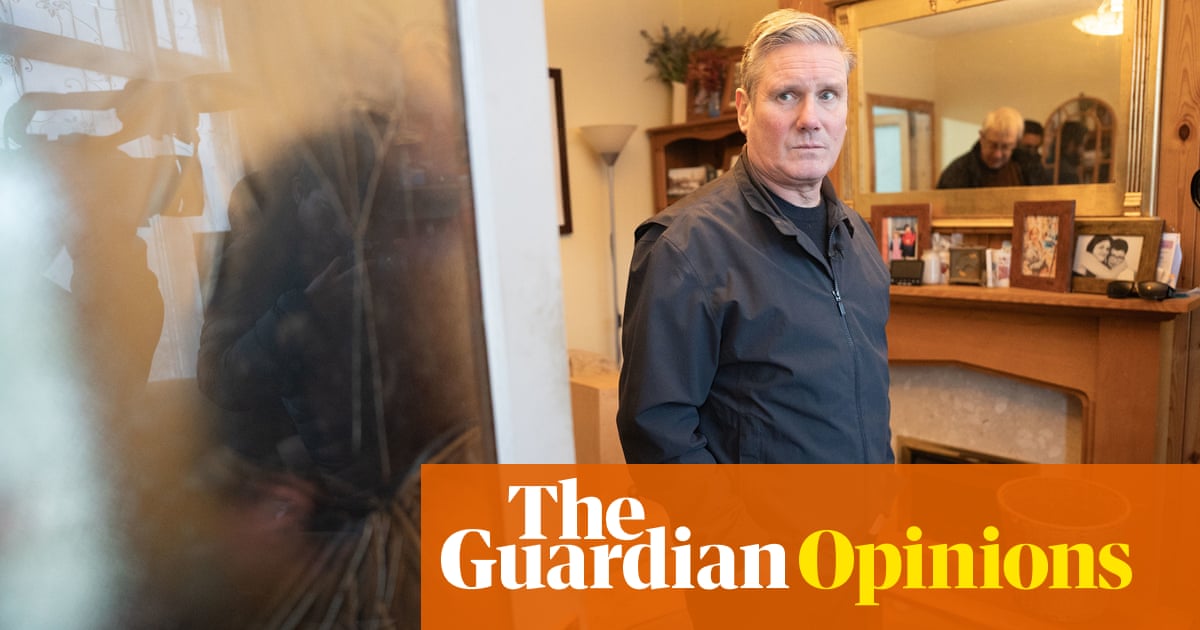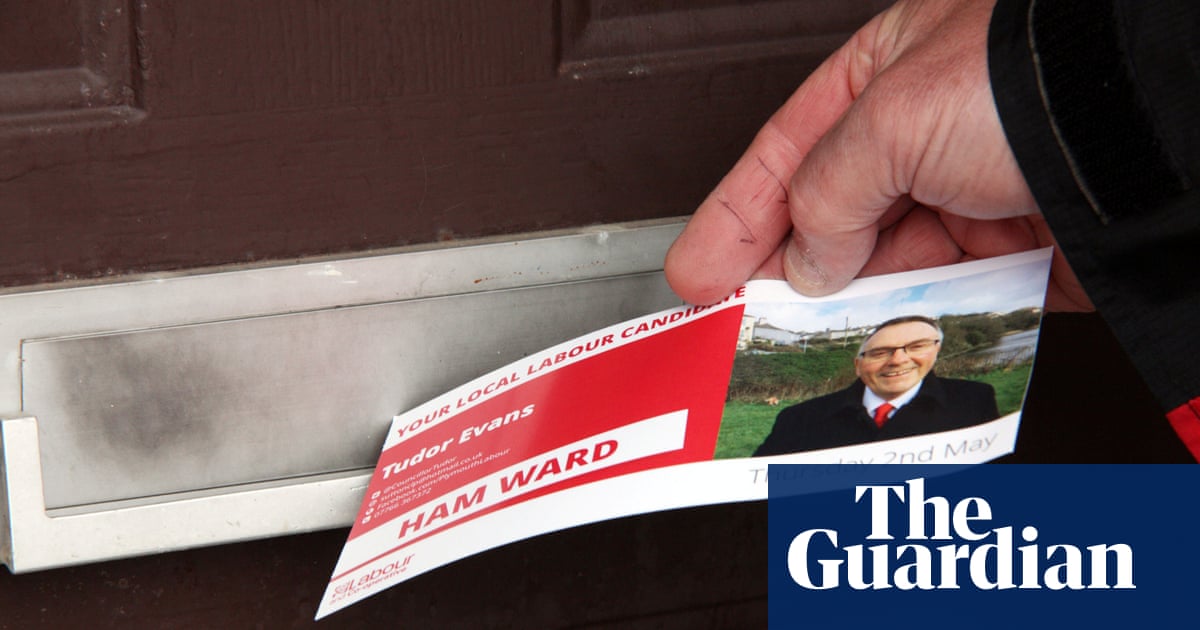
Over a cup of tea around his kitchen table a few weeks ago, Keir Starmer compared waiting for the general election to being in jail. “It feels like I’m chalking off the days on my cell wall before I can be released,” he told me.
Like many real prison inmates across the country recently, he’s been allowed out a bit earlier than expected by the government. Rishi Sunak’s surprise decision to call a 4 July election means the gates have swung open and the Labour leader is emerging into the white light of a campaign.
Starmer is relishing it all now and, for better or for worse, voters will at least know more about him by the time this election is over.
A small industry is already sprouting up to answer questions such as “Who is Keir Starmer really?” and “What does he stand for?” Despite the fact that Starmer is apparently heading for Downing Street, word-cloud polls about him routinely find the most popular answer is “Nothing” or “Don’t know”.
The Labour leader defies definition partly because he resists being forced into the frame that constrains most politicians. I doubt many of them would have likened his past few months to serving a prison sentence. Sitting on a 20-point poll lead while your opponents self-immolate in front of you is, for leaders of any party, about as good as it gets. Not Starmer, though, who says that he loathes opposition for being a waste of time.
At his kitchen table, he explains: “I’ve achieved less as a politician than I have at any other time in my life.” But to most, the nine years he has spent since being elected an MP would appear to be a roaring success. Starmer survived the firestorm of Brexit that turned so many other careers to ash, became Labour leader and has now taken his party back from the brink of political bankruptcy to the verge of power.
But for Starmer, politics is a means to an end. He did not give up a stellar legal career so he could make big speeches and have photographers outside his house, nor did he become Labour leader to save the party from the adoring crowds that chanted the name of his predecessor. By his account, everything he’s done in politics has had one goal: to get into government so he can create change.
There are, of course, plenty who will dismiss such talk as the sort of thing that politicians always say. After all, it was Tony Blair who stood outside Downing Street after his victory 27 years ago and declared: “Enough of talking – it is time now to do.” And on one level, it’s possible to make a comparison with Starmer, who has taken Labour relentlessly, and sometimes ruthlessly, on another journey back to the centre ground.
There was something superficially reminiscent of a “Britain deserves better” poster from 1997 when Labour launched its new pledge card last week, not least because the image on both was a black and white photograph of a leader in shirtsleeves and dark tie.
But look closer and there are key differences. Whereas Blair gazes up and imagines a new dawn breaking somewhere with an impossibly wide grin and his tie jauntily askew, Starmer is shown unsmiling as he stares down the barrel of the camera, tie buttoned up and sleeves pinned with iron precision on to his forearms.
The image suggests that Starmer is driven by a sense of duty rather than joy. And perhaps that seriousness is better suited to an era when, in contrast to the sunshine of 1997, people face fiscal austerity, darkening international horizons, and the sense, symbolised by Sunak’s soaking on Wednesday, that if the rain ever stops it will be only a temporary lull in the storm.
Those in thrall to the entitled swagger that was Boris Johnson’s “charisma” will try to dismiss the Labour leader for being “dull”. But the Conservative leadership has belatedly realised this quality makes Starmer appear stolidly reassuring after the political and economic mayhem of recent years.
Their attacks on him now echo Jeremy Corbyn’s angriest supporters as they accuse Starmer of changing his mind on policy pledges made during the Labour leadership contest four years ago. This, they say, makes him “untrustworthy” and shows how “he doesn’t have a plan”.
The flaw with their strategy is that it plays directly into everything the Labour leader wants to say over the next weeks. His one-word slogan in this campaign is “change”. Starmer will happily point out how he’s turned his party inside out to face the electorate and admit that he’s changed some policies because he has to overcome obstacles to change the country too.
Far from this making him untrustworthy, Labour will argue that someone who doesn’t get rid of expensive spending commitments after the triple economic catastrophes of Covid, Russia’s invasion of Ukraine and Liz Truss shouldn’t be trusted to hold sharp objects let alone the nation’s purse strings.
In the absence of sparkling new policies, Starmer’s speech tomorrow will describe how a Labour government would help a country coming together once again. Instead of defining himself through a self-consciously radical vision, he’ll talk about sharing a set of recognisably British values rooted in real life. The speech, delivered in the kind of small southern town where he grew up, is not about some rigid ideology but about the messier, more ordinary hope that comes from a sense of public service that puts country ahead of party, and offers a sense of respect.
As for having “a plan”, that’s what Starmer wants to talk about most of all. The five missions he launched last year are probably the most underreported documents in recent political history. They’re all personal, reflecting the range of his life experience – beginning with a working-class childhood in Surrey, where his dad tasted the poison of others’ snobbery, his mother was terribly sick and his siblings were left behind in precarious lives when he went to university.
The missions are intended to provide a system of priorities and the long-term direction for a Labour government – to replace what he calls the “sticking-plaster” short-term fixes of the past couple of decades.
Indeed, aides say the first few days of the campaign show that Labour has been better at “having a plan” for this election than have the Conservatives who tried to surprise everyone by calling it.
The manifesto has long since been written. Each of the “first step” pledges that Starmer unveiled last week is designed to appeal directly to voters’ lives. He has been doing debate rehearsals in a TV studio around the corner from Labour’s Southwark headquarters for several weeks. Morgan McSweeney, the campaign director, had boxes of “Vote Labour” boards sitting in a regional organiser’s garage near Gillingham almost a month before Starmer went there last week as he hit the election trail.
Pat McFadden, the campaign coordinator, has turned his notoriously gloomy approach to life into a virtue, with detailed preparations for the “wobble” that he believes a media bored by expectation of Labour victory will ensure happens. “They’ll want to do a comeback story about the underdog Tories if polls tighten – and we must be ready for it,” he says.
A key to this is to prevent Starmer losing touch with party HQ during the campaign. Along with a 6.30am call with his most senior advisers, responsibility for judging when to “play Keir in” on other decisions has been given to Jill Cuthbertson, his trusted gatekeeper who still has battle scars from unscripted moments in previous elections. If there are complaints from the media that events are too tightly controlled and stage-managed, it means she’s doing her job. Labour will also resist any temptation for Starmer to match the hyperactivity of Sunak’s regional tours. “We don’t need Keir doing cartwheels from John o’Groats to Land’s End to show he’s fit for office,” said a Labour aide.
The incredulity among Starmer’s team over the Tories’ disastrous start to the campaign means, according to this aide, that “no one thinks they’re going to carry on being so shit”.
And such recognition of the hazards ahead also serve as a reminder that Starmer, for all his reputation as a cautious man, has already taken gigantic risks over the last four years. Whether this was over the suspension of Corbyn, internal party reforms or policy changes, he has not always moved in a straight line. His progress is akin to that of someone working out how to cross a minefield who takes one step forward, then two to the left, one back, one to the right and then two forward. This can seem inelegant, even odd. But compared to the wild rides into the Valley of Death by Labour’s light brigade in recent years, it’s a much better way to get to other side.
Starmer is now within touching distance of Downing Street. He has been assiduous in improving the interviews and speech-making, as well as the ritual name-calling of prime minister’s questions, that are the core skills required of opposition leaders. But it still doesn’t come naturally to someone who spent almost three decades arguing about facts and evidence as a lawyer while locating his identity outside politics in friends, football and family. Mark Adams, who has known him since school, says: “Keir’s a regular bloke who has always liked a pint or two, talking nonsense with his mates and playing far more football than is good for him. It’s how he plugs himself back into his private network and recharges himself.”
You can get glimpses of this when he’s out campaigning because, unlike many politicians, Starmer seems to enjoy talking to ordinary people. It’s just the shrillness and shallowness of politics itself he dislikes. As he gets closer to power, he will inevitably be insulated from the outside world by ever deeper personal and political protection. He worries about what effect this will have on his children, beginning with his son’s GCSE exams this summer. Starmer will also miss watching football from the stands at Arsenal and gracing his local Astroturf for eight-a-sides. His eyes briefly lit up when I suggested he could do his own expensive refurbishment of the prime ministerial flat in Downing Street by building a replica of his local pub, the Pineapple, inside. Then he shook his head sadly.
More than most leaders, Starmer needs these bridges back to what he calls “real life” to stay connected with the values that brought him into politics in the first place.
Just getting to Downing Street won’t mean he’s has achieved much change in other people’s lives. But if Starmer is going to stick around long enough to do so, he should try to avoid making too much change in his own.
Keir Starmer: The Biography by Tom Baldwin is published by William Collins (£25). To support the Guardian and Observer order your copy at guardianbookshop.com. Delivery charges may apply












